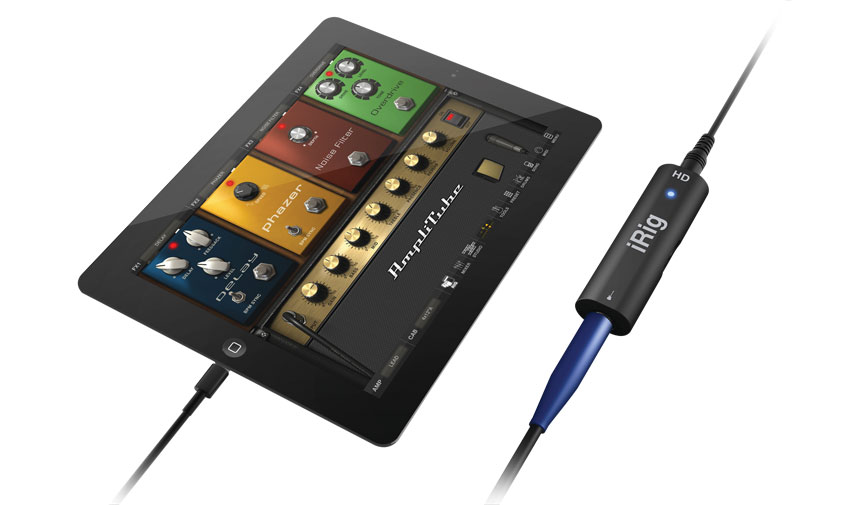MusicRadar Verdict
Nicely upgraded, the iRig HD is a quality route to get your guitar into your i-device.
Pros
- +
Quality sound, easy portability and flexible connectivity.
Cons
- -
Price.
MusicRadar's got your back
The original iRig was one of the earliest devices for connecting a guitar to an iPad and accessing amp sims and recording software. It plugged into the headphone socket, which wasn't an ideal way to do things because crosstalk could result in headphone feedback.
There are no such problems with the new iRig HD, though; it features connection to the 30-pin port and also comes with detachable cables to connect to Lightning and USB ports, enabling it to work with any iPhone, iPod touch, iPad or Mac.
In use
"With 24-bit audio quality, the iRig HD translates your guitar sound well, inputting a clean, dynamic signal for your app"
Robust and easily portable, the iRig HD takes it power from your device and features a single jack socket for guitar. You set your input gain with an inset knob while monitoring the sound through headphones or monitors connected to your device or computer.
With 24-bit audio quality, the iRig HD translates your guitar sound well, inputting a clean, dynamic signal for your app. We got great results both playing the GarageBand and AmpliTube amps on our iPad and recording guitar.
If you don't already have amp-sim apps, the iRig HD comes with four exclusive models (two metal amps plus Whammy and flanger effects) for the AmpliTube FREE app. Mac users also get a free download of the AmpliTube Metal collection.
With quality sound, easy portability and flexible connectivity, the iRig HD could well be the ideal way to link up your guitar with a mobile device or computer.
Want all the hottest music and gear news, reviews, deals, features and more, direct to your inbox? Sign up here.
Trevor Curwen has played guitar for several decades – he's also mimed it on the UK's Top of the Pops. Much of his working life, though, has been spent behind the mixing desk, during which time he has built up a solid collection of the guitars, amps and pedals needed to cover just about any studio session. He writes pedal reviews for Guitarist and has contributed to Total Guitar, MusicRadar and Future Music among others.

